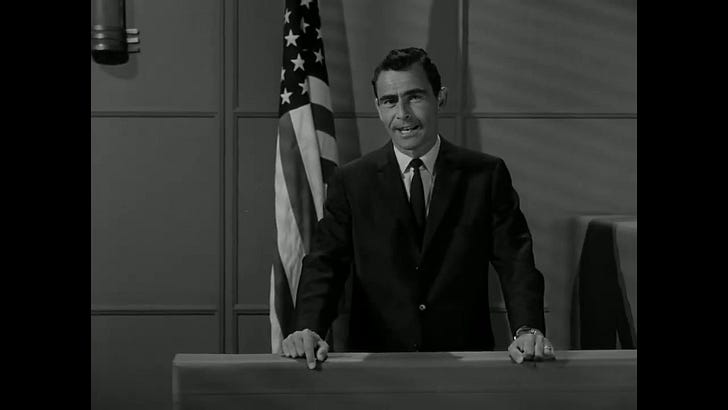It seems as if several political lifetimes passed during 2024. Almost a year ago, I had the pleasure of speaking with Democratic political commentator and strategist Kaivan Shroff, who joined me in the aftermath of the New Hampshire Republican primary. Back then, the punditry (and many Democrats) held out hope that Donald Trump could still lose the GOP nomination. He was under indictment for serious crimes, after all.
Ultimately, none of that mattered, not in the primary nor in the general election, where the so-called “Haley voters” predictably became Trump voters.
Still, I think you’ll enjoy my conversation with Kaivan Shroff, who offers compelling insights into Nikki Haley’s views on race and how appeasing the GOP's extremist, anti-Black MAGA base is a disturbing preview of what a Haley presidency would’ve looked like. By the end of the year, Haley would have sold out everything she claimed to stand for in deference to Trump, who has no interest in rewarding her.
Edited excerpts from January 24, 2024 interview:
SER: The timing is perfect for our conversation because last night from when we’re recording was the New Hampshire primary where Donald Trump defeated Nikki Haley and became, I believe, the first Republican candidate since 1976 to win both Iowa and New Hampshire in a contested primary.
So if you could just give us your take, Kaivan, on what happened and on what would have been, many pundits thought, Nikki Haley's best chance to make some sort of change in the momentum.
KAIVAN: Sure. I think the way you frame that is so perfect because it was really pundits who were driving, I think,he Nikki Haley narrative.
You know, sure, she’s 11 points behind Trump. A week ago, it was that she was tied with Trump. Then it was that she could beat Trump. And now they’re trying to cast this second place in a two person race as that she did something amazing and won something.
I mean, she lost. She was going to lose. This primary has been over since the day it began.
SER: It just seems like there are so many wolves at the door who made the choice that Haley and Ron DeSantis did not make, which is, we’re not getting in this mess.
We’re holding our fire. Ted Cruz came in second [in 2016.] Most Republican second place finishers do come back.He didn’t come back.
Josh Hawley … Tom Cotton was thinking about it, but didn't.
And it felt like, to me, if you got this sort of crazy West Wing scenario, what you would get at a brokered convention would be a full-on MAGA battle. All of these folks would come in and say, “Well, I’m the true heir to Trump, not Nikki Haley.”
Anyone close to Trump would, of course, enable that. So this idea that she could finish as a distant second and then win if something would happen to [Trump] also seems very unrealistic.
KAIVAN: Right. I mean, that's true. But you look at Nikki Haley, she's been framed as a moderate or some reasonable person. She herself says, “I’m no moderate.”
She is no moderate. She’s [in favor of a] federal abortion ban. She has defended Trump on every issue. She was attacking Ron DeSantis, that how you run your campaign reflects how you lead. And then the next day was asked about all Trump's legal issues.
And she says she doesn’t pay attention to them. That makes no sense. You’re running for the nomination and the guy beating you has several legal issues hanging over his head. You should be paying attention. So it’s not true.
SER: You’ve talked about a lot of these issues in ways that I feel like a lot of our punditry is not qualified to talk about.
I’ve been reflexively defensive of [Haley] in certain ways because I didn’t like how people on the Left and Right have gone after her name or putting white on her birth certificate and all of that.
But you are in that position to call it out. Let's be blunt about this. Nikki Haley presents as white in certain ways, culturally. Her parents “look” Indian, right —there are certain cultural signifiers. That’s what Trump wanted. He got on the news that image and I was seeing a lot of MAGA was spreading those photos and then saying terrible things about her in ways they hadn't before.
And so, yeah, please go on about your thoughts about her.
KAIVAN: So, I absolutely agree with you, because I know you and I talked about that we do see these liberals sort of in our comments in response to our content, calling her Nimrata, trying to use her birth name on her first birth name on her birth certificate to point out the fact that she has sort of changed her name, doesn’t identify by the name on her birth certificate.
And I think it is sort of an unfair attack if you just take it in the context of, well, other candidates have changed their names. Mitt Romney, you know, his first name's not Mitt. You have a lot of nicknames in politics for sure, Bobby, all that type of stuff.
But I think what stands out to me as an Indian American who's followed Haley for a long time just because of that angle is that she's doing two things at once. You know, for me, I’m progressive. I’m all for people choosing how they want to identify, even though someone like Haley would refuse to acknowledge how somebody, you know, chooses to identify with their pronoun. So there's a little bit of an irony there.
But I will say it’s the two functions at once of her choosing to opt in differently. to dominant white Christian American identities while also denying and gaslighting about the realities of racism and the history in this country.
So, yes, I think if you say Nikki Haley goes by the middle name on her birth certificate instead of her more ethnic sounding first name, maybe it's a little problematic to really focus on that alone.
Then you take, though, that she also did identify as white on her 2001 voter registration card. It’s a weird thing to do, by the way, because there’s been some blurring of the lines here. There’s been a lie put out that the only options were white, Black or, you know, other. And that’s not true. At the time, Asian would have been a category she could have selected. So she chose to identify as white instead of Asian, which she is. It doesn’t make sense.
And then third, she did convert to Christianity instead of, you know, her religion is Sikhism. And again, each of those things taken separately, I think it’s fair to wonder why somebody would point that out.But when you look at that passage. I think, by the way, it's not just the circulation of that photo that you’re talking about that I think was Trump’s goal.
I do think genuinely many people, even many well-meaning people who don't have anything against her, don’t know that she is an Indian American woman.
They think she is white because she has portrayed herself that way. In every instance, she had the opportunity to do so until at 50 plus, she launched her incredibly cynical presidential campaign saying, I’m not Black. I’m not white, I’m different. And then she upholds all these model minority tropes.
It’s that behavior in conjunction with, decades ago, in the ‘70s, raising a young Indian girl and decided to call you by Nikki, the middle name on your birth certificate, that happened for a reason. And it’s a reason a lot of immigrant communities understand Indian American or otherwise, which is assimilation.
And so to deny the realities that all of those choices were made because there was discrimination, which she now acknowledges, by the way, that she was discriminated against as a child trying to compete in a beauty pageant because they didn’t know whether to enter her as Black or white. She says she faced discrimination all the time. So which is it, Nikki Haley? And stop lying that it doesn’t exist.
I think that’s the point.
















